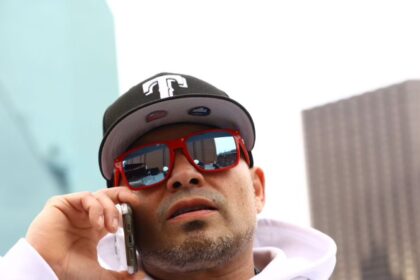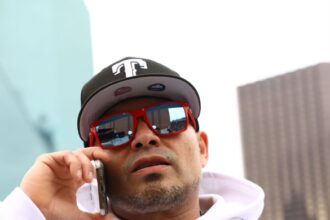Exploring New Frontiers: NPB Players Association’s Battle for Rights
In a bold move, Tony Clark, the executive director of the Major League Baseball Players Association, recently visited Japan to extend support to players in Nippon Professional Baseball, the country’s top league. The focus of the visit was to address the issue of name, image, and likeness rights (NIL), a struggle that resonates with college athletes in the United States. Currently, the NPB clubs control these rights, giving them the final say on player endorsements.
However, the quest for NIL is just the tip of the iceberg for the Japan Professional Baseball Players Association (JPBPA). In a more ambitious move, NPB players are aiming to attain free agency at an earlier stage in their careers, which could potentially allow them to join Major League Baseball sooner.
To make this transition happen, the JPBPA is gearing up for a legal battle against the league’s reserve system on antitrust grounds. While the exact timeline for this action remains undisclosed, the challenge is anticipated to take place this year.
Players in Japan are granted two forms of free agency: domestic and international. Domestic free agency allows players to switch to another NPB team after seven or eight years in the league, depending on their entry point post-draft. On the other hand, to move to a foreign league like MLB as a free agent, players must wait for nine years, unless their team chooses to post them for bidding.
The JPBPA’s striving for change marks a significant shift for a players’ association with less influence compared to its U.S. equivalent. The power dynamics in NPB are tilted towards club owners, given the historical strength disparity between labor unions in Japan and the United States.
While a second player strike in NPB seems unlikely at present, the JPBPA is eyeing the Japan Fair Trade Commission as a strategic avenue to challenge the existing reserve system. Recent changes in the interpretation of antitrust laws in 2019 have provided athletes in Japan with newfound leverage.
One notable victory for the JPBPA was the repeal of the “Tazawa Rule” in 2020, following a successful case argued in front of the commission. This rule had restricted former MLB pitcher Junichi Tazawa from returning to NPB, signaling a significant win for player mobility.
As the JPBPA continues its advocacy for NIL rights and broader free agency provisions, the MLBPA’s involvement represents not just union support but also a lucrative business opportunity. Collaborating with its licensing entity, OneTeam Partners, the MLBPA is spearheading efforts to assist Japanese players in reclaiming their rights and managing them through an innovative commercial program.
The juxtaposition of cultural norms and labor dynamics between Japan and the United States adds a layer of complexity to the ongoing narrative of player empowerment in NPB. Despite differing systems and historical contexts, the spirit of collective bargaining and player advocacy echoes through both leagues, marking a pivotal moment in the evolution of player rights in Japanese baseball.
Stay tuned as NPB players navigate uncharted territories in their quest for autonomy and fairness in the realm of professional sports.
(Image: MLBPA head Tony Clark supporting union efforts in Japan – Daniel Shirey / MLB Photos via Getty Images)








